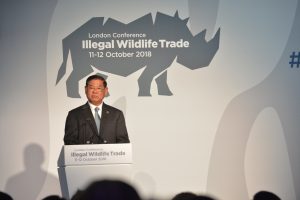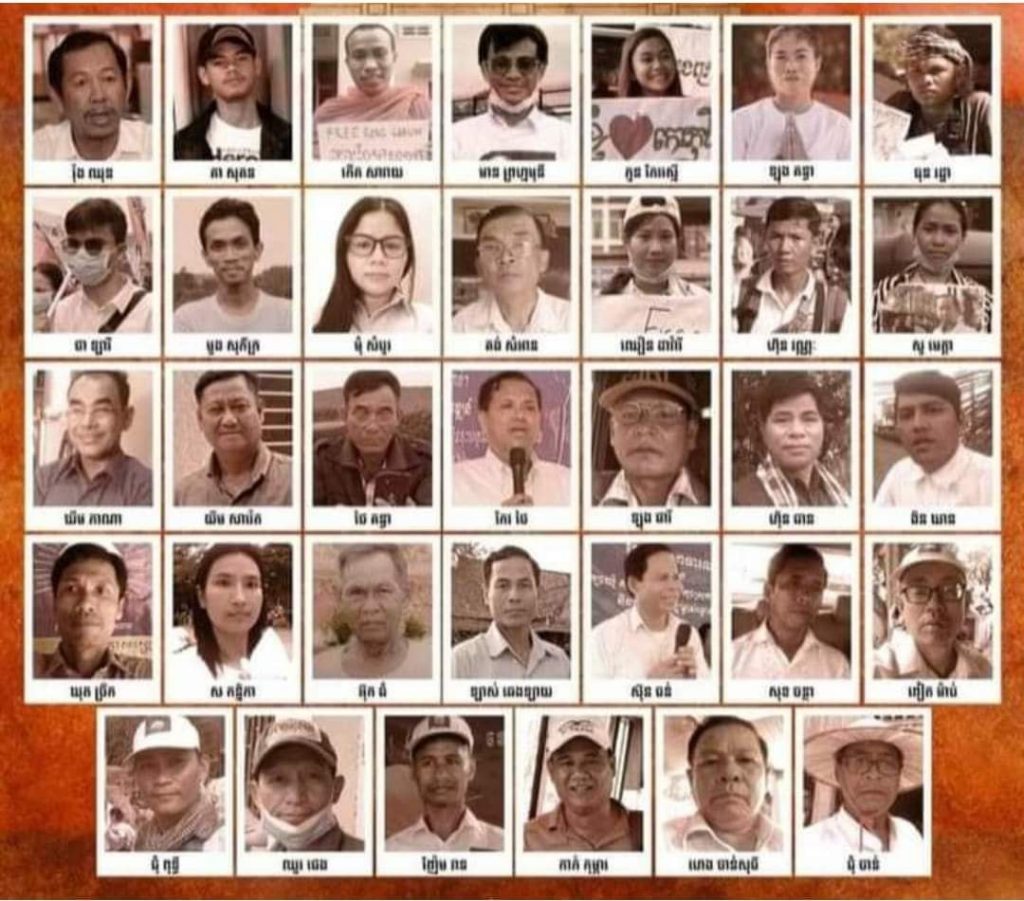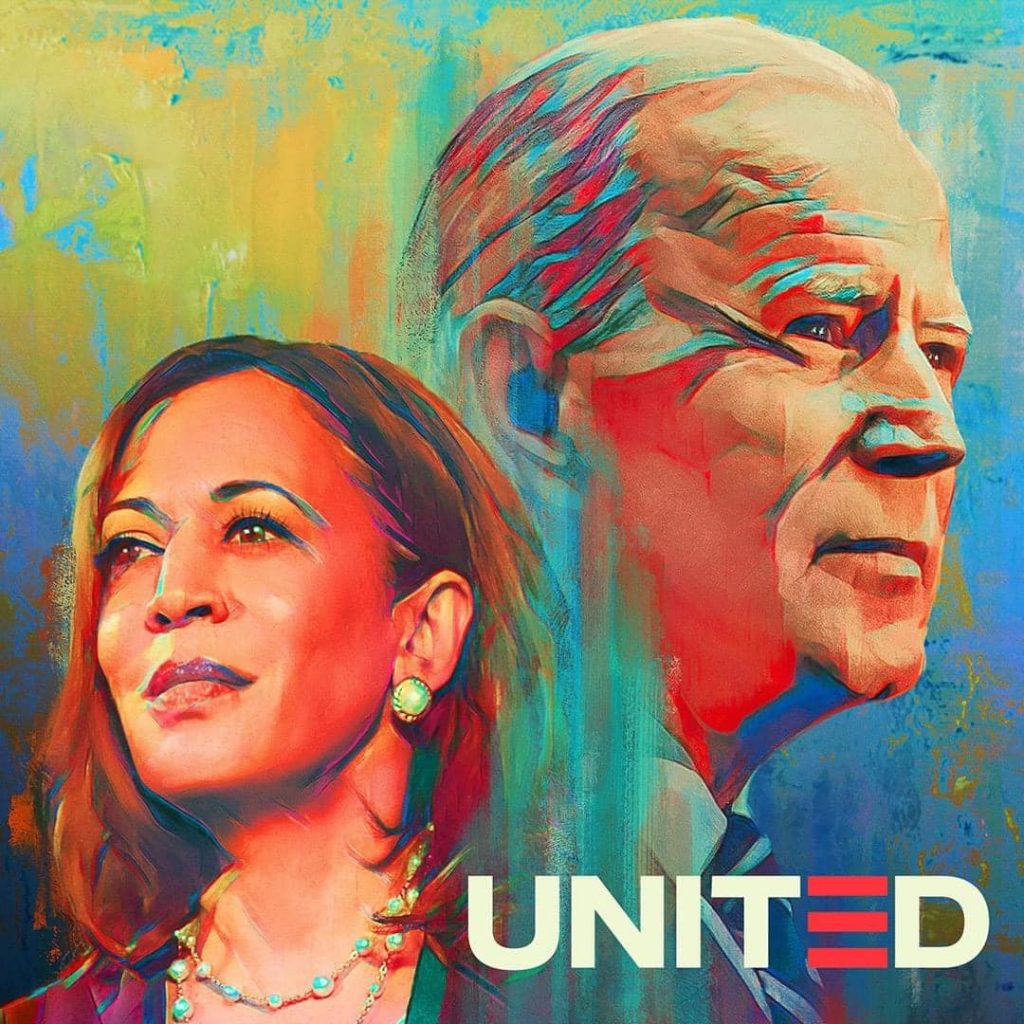សង្ខេប៖ អត្ថបទនេះរៀបរាប់ស៊ីជម្រៅពីនយោបាយបរាជ័យរបស់លោកហ៊ុន-សែន ម្តងហើយម្តងទៀតក្រោយឆ្នាំ២០១៣។ សមាជិកបក្សភាគច្រើនមិនសប្បាយចិត្តចំពោះលោកហ៊ុន-សែន ដែលពួកគេធ្លាប់តែសរសើរថាសម្រេចចិត្តត្រូវធ្វើត្រូវ តែពេលនេះបានធ្វើកិច្ចការមួយចំនួនធំដែលសមាជិកភាគច្រើនមិនគាំទ្រដូចជារំលាយគណបក្សសង្គ្រោះជាតិ ធ្វើជាបច្ចាមិត្រជាមួយអឺរ៉ុបនិងអាមេរិក បង្កើនបណ្តាញក្រុមខ្លួនលើកតំឡើងឋានន្តរស័ក្តិឆ័ត្រយោងព្រមទាំងគ្មានសមត្ថភាព និងហ៊ុមព័ទ្ធកេងចំណេញទ្រព្យធនសម្រាប់តែខ្លួននិងក្រុមខ្លួន។ ក្រុមដែលចេញមុខចំហរទប់ទល់នយោបាយខុសរបស់លោកហ៊ុន-សែនគឺស-ខេង។ យុទ្ធសាស្ត្រលោកហ៊ុន-សែនបំបែកកឹម-សុខាពីសម-រង្ស៊ី បានក្លាយជាការអោបយកកឹម-សុខា រួមរុញច្រានលោកសម-រង្ស៊ីអោយចូលជាធ្លុងមួយជាលោកស-ខេង។ គំរោងលោកហ៊ុន-សែនចង់ប្រកាសបន្តុបកូនខ្លួន បានបរាជ័យម្តងជាពីរដងទាំងផ្ទៃក្នុងបក្សទាំងឆាកអន្តរជាតិ។ ពត៌មានចចាមអារាមចុងក្រោយពីផ្ទៃក្នុងគឺការទាញយកលោកអូន-ពន្ធមុនីរ័តជាតំណាងនៅពេលលោកហ៊ុន-សែនមិនអាចបំពេញការងារបាន ដោយផាត់លោកស-ខេងចេញក្នុងហេតុផលថាទុកចាស់ៗមួយឡែកសិន ដោយអោយក្មេងៗគេធ្វើការម្តង។ អណត្តិលោកចូ-បៃដិន នឹងមានវិធានការជាក់ស្តែងដូចមានសំបុត្រពីសមាជិកព្រឹទ្ធសភាទាំង៨នាក់ស្រាប់ ដែលបណ្តាលអោយលោកហ៊ុន-សែនអង្គុយមិនជាប់ក្តិត បែរប្រើតុលាការកាត់ទោសមនុស្សម្តង១៥០នាក់ ហើយបានចាប់មនុស្សដាក់ពន្ធនាគារប្រមាណ៨០នាក់រួមទាំងព្រះសង្ឃ យុវជន យុវតី តារាចំរៀងរ៉ាប់ ក្មេងៗជាច្រើន។ ស្ថានការណ៍ដើមឆ្នាំក្រោយនឹងកាន់តែតឹងតែងខ្លាំងឡើយសម្រាប់លោកហ៊ុន-សែន ដែលការលេបត្របាក់ប្រជាធិបតេយ្យ ធ្វើអោយគាត់ឈឺជំងឺរលួយពោះវៀនយ៉ាងដំណំ បើមិនខ្ជាក់ចេញទេ គាត់នឹងស្លាប់។
Rumors have long swirled of an alliance between opposition leader Sam Rainsy and Interior Minister Sar Kheng.
By David Hutt November 27, 2020

Sam Rainsy has taken exception to journalists who write that he “fled” Cambodia in late 2015. Instead, he says, what actually happened was that Interior Minister Sar Kheng contacted him privately via then-U.S. Ambassador William Heidt to warn him not to return from a visit to South Korea. Rainsy has stated that Sar Kheng “begged me not to come back” and advised him to wait abroad as the Interior Minister tried to talk(calm?) Prime Minister Hun Sen down from his threat to issue an arrest warrant for the opposition leader.
The day Sam Rainsy was supposed to return from a visit to Seoul – November 16, 2015 – the National Assembly voted to remove his parliamentary immunity. At the time, he was president of the Cambodia National Rescue Party (CNRP), the country’s only true opposition party. Banned in November 2017 on the spurious grounds that it was plotting a U.S.-backed coup, hundreds of the party’s elected officials and activists joined Sam Rainsy in exile, while the party’s president Kem Sokha, who took over the post in early 2017, was arrested for treason – a charge that still hangs over him.

Sam Rainsy’s telling of the events of November 2015 has been on the public record for almost two years, since he first made these claims back in January 2019. I cannot confirm all the details, but I hear they’re accurate. Speaking via email this week, Sam Rainsy elaborated. “I have spoken in private with [Sar Kheng]. I know his feelings and understand his fear of Hun Sen,” he told me, as I reported here. “Dissolving the CNRP might [have been] a pre-emptive move by Hun Sen to prevent an ‘alliance’ between Sar Kheng and Sam Rainsy,” he added. “Sar Kheng’s real but untold interest is to prevent Hun Sen from eliminating Sam Rainsy.”

Before the events of November 2017, Sam Rainsy told me, at least seven of the CPP’s 68 members of parliament “were pro-Sar Kheng” and, if instructed, could have joined with the CNRP’s 55 parliamentarians to create a majority in the National Assembly. “This helps explain Hun Sen’s fear and his determination to eliminate the CNRP under any ludicrous pretext such as ‘treason,’” he claimed.
Naturally, this raised more questions than it answered. Why, for instance, once it became apparent that Sar Kheng wasn’t able to tame Hun Sen, did Sam Rainsy not return, such as after attempts were made to arrest Kem Sokha in July 2016? (He was only formally exiled in October 2016.) One must also consider the political intention of his claims. For years, Sam Rainsy has tried to sow divisions between Hun Sen and Sar Kheng, who are thought to lead the two main factions within the long-ruling Cambodian People’s Party (CPP), in much the same way as the prime minister has tried to widen splits within the CNRP.
Perhaps that was how Sar Kheng thought back in 2015 or even up until late 2017, but what about today? When asked about his current relationship with the interior minister, Sam Rainsy replied: “There are things on which we cannot elaborate at this point. Let’s avoid too much speculation. We will see.”
Since the 1990s, foreign diplomats and some of us hacks have portrayed Sar Kheng as the more amendable alternative to Hun Sen, as the Southeast Asia Globe documented in detail back in 2018. Indeed, the Phnom Penh grapevine echoed with claims that Sar Kheng was the only one capable of a “palace coup,” likely the only way of removing Hun Sen from office. But this always seemed to be one of those cases of actions being judged by reputation, not the other way around. And trying to identify divisions within the CPP has long been a unrewarding folly of Cambodia-watchers, a labor of judging whether jigsaw pieces of rumor and off-hand remarks fit neatly together.
Continue reading